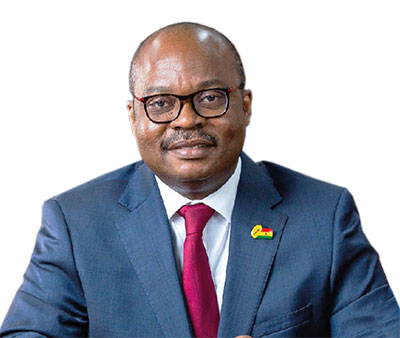The Bank of Ghana kept the policy rate at 29% for the next two and a half months, indicating that the cost of borrowing will stay the same for that duration.
The average lending rate stood at 32.7% in February 2024, after declining for 13 consecutive months.
According to the Bank of Ghana, the risks to inflation are slightly on the upside and will require close monitoring.
“After decelerating sharply in 2023, the pace of disinflation has slowed in the first two months of the year. Although inflation rose slightly in January 2024 and edged down in February, the latest inflation forecast suggests a slightly elevated profile from the possible upward revision in transport fares, adjustment in utility tariffs, higher ex-pump prices, and some pass-through of exchange rate depreciation”, the Governor of the Bank of Ghana said.
Headline inflation has remained broadly stable since December 2023. It declined to 23.2% in February 2024, down from 23.5% recorded in January 2024.
The decline was broad-based, with food inflation down by 0.1 percentage points to 27.0%, while non-food inflation declined to 20.0%.
Core inflation also slowed down, indicating continued broad-based easing in underlying inflationary pressures. The Central Bank’s core inflation measure, which excludes energy and utility, continued to decline to 24.0% in February 2024.
The expectations Survey of the banking sector, consumers, and businesses also revealed broadly stable expectations in the months ahead.
Money market rates ease
Money market rates continued on a downward trend at the short end of the yield curve.
The 91-day and 182-day Treasury bill rates declined to 27.87% and 30.34% in February 2024, from 35.67% and 35.73% respectively, in the same period of 2023.
Similarly, the rate on the 364-day instrument decreased to 30.90% in February 2024 from 34.92% in February 2023.



























